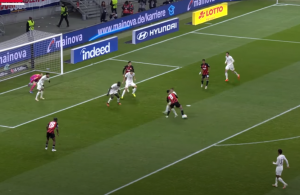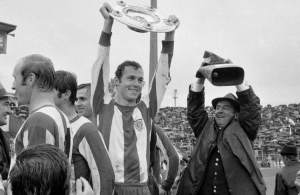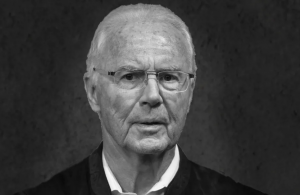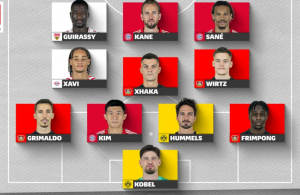- Molly O’Callaghan, a 19-year-old swimmer from Australia, etched her name in the annals of swimming history with a remarkable performance in the Women’s 200m Freestyle event
- Akshay Bhatia, 21, Wins his First PGA Tour Title at the Barracuda Championship
- Bruno Fernandes Replaces Harry Maguire as New Man Utd Captain
- Lionel Messi Surprises Teammate in group chat ahead of Grand Unveiling
- Man Utd Sign Keeper Andre Onana from Inter
Franz Beckenbauer Career in Numbers
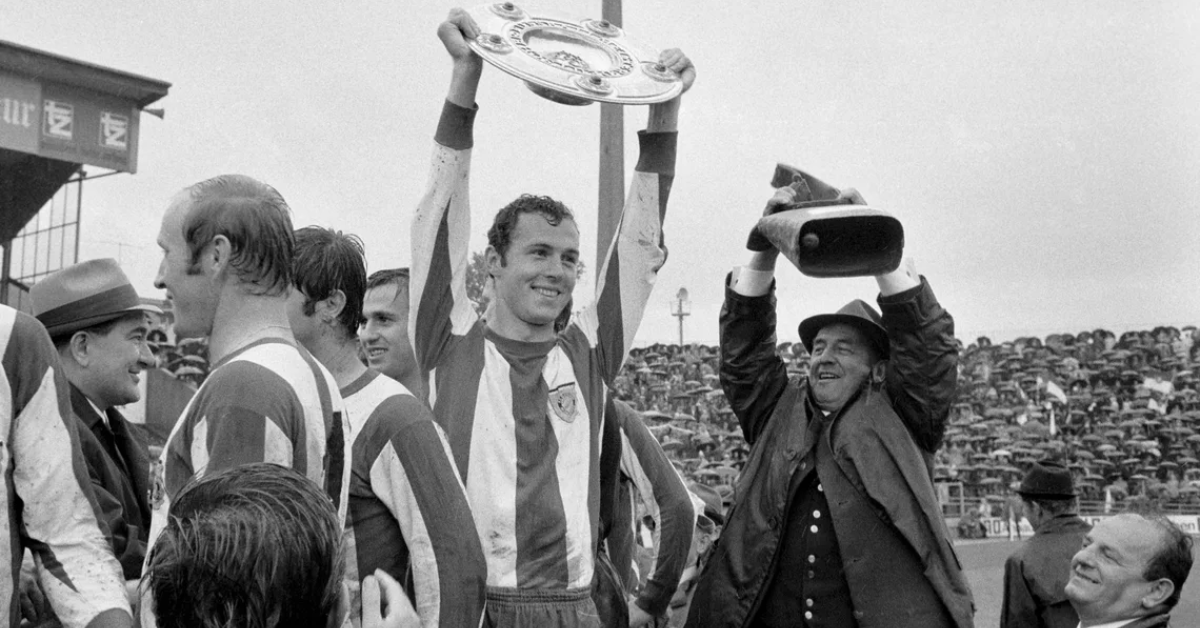
Franz Beckenbauer, affectionately known as “Der Kaiser,” has etched his name in football history as one of the greatest and most influential figures in the sport. Over the course of his illustrious career as both a player and a coach, Beckenbauer has left an indelible mark, setting numerous records and becoming a true legend.
Beckenbauer’s journey in the Bundesliga began on August 14, 1965, with Bayern experiencing a 1-0 loss to city rivals 1860. Almost 12 years later, he bid farewell to the league on May 21, 1977, in a 2-2 draw against Borussia Mönchengladbach. In the interim, Beckenbauer led Bayern to their first Bundesliga title in 1968/69, followed by triumphs in 1971/72, 1972/73, and 1973/74.
Under his captaincy, Bayern became the first German club to clinch three consecutive league titles between 1972 and 1974. Beckenbauer’s impact extended to Hamburg, where his debut in 1980 marked the first and only time he entered the pitch as a Bundesliga substitute.
In a managerial role, Beckenbauer achieved success with Marseille, securing the French league title in 1990/91. However, it is on the grandest stage that his legacy shines brightest—having won the World Cup both as a player in 1974 and as a coach in 1990. Only two others, Brazil’s Mario Zagallo and France’s Didier Deschamps, share this remarkable feat.
Acknowledging his individual brilliance, Beckenbauer claimed the Ballon d’Or twice in 1972 and 1976, joining the elite ranks of German footballers. His playing career saw victories in the 1972 European Championship and the 1974 World Cup, while earning runner-up medals in the 1966 World Cup and the 1976 European Championship.
Beyond the Bundesliga, Beckenbauer showcased his talent with the New York Cosmos, winning the North American Soccer League (NASL) title three times. Domestically, he secured the DFB Cup with Bayern four times and earned the title of Germany’s Footballer of the Year four times.
While renowned for his successes, Beckenbauer’s career had its share of challenges. Despite scoring four times in his debut Bundesliga season in 1965/66, he struggled with penalties, converting only three out of six. His tally of four own goals remains an unwanted Bundesliga record for a Bayern player.
Beckenbauer’s final Bundesliga game in 1982, now with Hamburg, concluded with a title win, marking his fifth overall. His association with Bayern spanned an impressive 12 seasons, during which he made no fewer than 33 appearances in each season, except one.
Internationally, Beckenbauer earned 103 caps for Germany, ranking 14th in the all-time appearance list. As a coach, he oversaw 18 Bundesliga games, securing 10 wins, three draws, and five defeats. In the 1972/73 season, he contributed to Bayern’s record-setting 25 wins, a feat later matched by Borussia Dortmund in 2011/12.
Beckenbauer’s coaching prowess extended to the international stage, leading Germany in 66 games and culminating in a triumphant 1990 World Cup final. His tenure at Bayern included setting a goal-scoring record with 101 goals in the 1971/72 season, a feat yet to be equaled.
In 1995/96, Beckenbauer guided Bayern to their sole UEFA Cup triumph as a coach. Over his career, he played in 424 Bundesliga games, scoring 44 goals, and remarkably, never receiving a red card while collecting only four yellow cards.
Franz Beckenbauer’s legacy is not just a statistical marvel but a testament to his enduring impact on the beautiful game—a legend whose influence transcends numbers.
For More Related Updates Please Visit Our Official Website
By- Sahiba Suri
Related Posts
Recent Posts
-
Al Ain Shocks Al Hilal: Ends 34-Match Winning Streak
Al Ain Football Club, representing the...
-
Xavi: Barca Ready for Battle Against PSG
Barcelona Manager Xavi Hernandez has emphasized...
-
The Duel: Scottie Scheffler’s Winning Mindset
Scottie Scheffler’s victory at the Masters...
-
Ronaldo Red Card: Saudi Super Cup Drama
In the realm of football, few...
-
IPL 2024 Opener: CSK vs RCB
The upcoming IPL 2024 season is...
-
Padel Pros Shine in NAS Sports Tournament
The latest edition of the NAS...
-
Al Mouj Golf Wins Asian Tour Award
At the prestigious Asian Tour Awards...
-
Liverpool Trophy Pursuit Under Klopp’s Farewell
Liverpool aims to honor manager Juergen...

